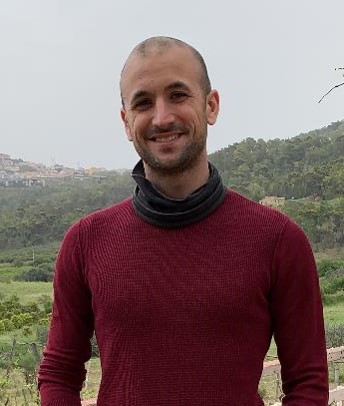Studying at the University of Verona
Here you can find information on the organisational aspects of the Programme, lecture timetables, learning activities and useful contact details for your time at the University, from enrolment to graduation.
Academic calendar
The academic calendar shows the deadlines and scheduled events that are relevant to students, teaching and technical-administrative staff of the University. Public holidays and University closures are also indicated. The academic year normally begins on 1 October each year and ends on 30 September of the following year.
Course calendar
The Academic Calendar sets out the degree programme lecture and exam timetables, as well as the relevant university closure dates..
| Period | From | To |
|---|---|---|
| 1° Semestre | Oct 1, 2023 | Jan 31, 2024 |
| 2° Semestre | Mar 1, 2024 | Jun 30, 2024 |
Exam calendar
To view all the exam sessions available, please use the Exam dashboard on ESSE3. If you forgot your login details or have problems logging in, please contact the relevant IT HelpDesk, or check the login details recovery web page.
Should you have any doubts or questions, please check the Enrollment FAQs
Academic staff
 denise.lovison@univr.it
denise.lovison@univr.it
Study Plan
The Study Plan includes all modules, teaching and learning activities that each student will need to undertake during their time at the University.
Please select your Study Plan based on your enrollment year.
1° Year
| Modules | Credits | TAF | SSD |
|---|
2° Year It will be activated in the A.Y. 2024/2025
| Modules | Credits | TAF | SSD |
|---|
3° Year It will be activated in the A.Y. 2025/2026
| Modules | Credits | TAF | SSD |
|---|
4° Year It will be activated in the A.Y. 2026/2027
| Modules | Credits | TAF | SSD |
|---|
5° Year It will be activated in the A.Y. 2027/2028
| Modules | Credits | TAF | SSD |
|---|
| Modules | Credits | TAF | SSD |
|---|
| Modules | Credits | TAF | SSD |
|---|
| Modules | Credits | TAF | SSD |
|---|
| Modules | Credits | TAF | SSD |
|---|
| Modules | Credits | TAF | SSD |
|---|
| Modules | Credits | TAF | SSD |
|---|
Legend | Type of training activity (TTA)
TAF (Type of Educational Activity) All courses and activities are classified into different types of educational activities, indicated by a letter.
Clinical pharmacology (It will be activated in the A.Y. 2026/2027)
Teaching code
4S000070
Credits
12
Scientific Disciplinary Sector (SSD)
-
Learning objectives
The educational objectives of the course are the learning of knowledge in the field of Clinical Pharmacology as it is implemented in the complexity and variability of the different clinical conditions, chronicity and personalization in the field of pharmacotherapy and chemotherapy. The student will learn:
• factors and clinical conditions influencing biotransformation: age; pregnancy; race (polymorphism); diet; pathologies; sex; route of drug administration; drug induction and inhibition of metabolism.
• factors and clinical conditions influencing renal clearance and hepatic function
• Factors linked to the genetic component
• Pharmacogenetics;
• Polypharmacy;
• the variability of the pharmacological response: individual, hyperreactivity and hyporeactivity, idiosyncrasy, drug allergy, tolerance, dependence.
• In-depth study of clinical trials to learn about the drug development phases with particular reference to the rules of randomized controlled trials necessary for an evidence-based therapeutic approach and to know how to critically read the experimental design and the results of a clinical trial and post- marketing.
Examination Methods
Written and oral exam on the complete program. The written test to ascertain knowledge consists of 30 questions, with multiple answers of which only one is correct, and - if the sufficiency of 18/30 is reached. - from 2) an oral interview to ascertain the critical knowledge for the possible improvement of the mark. For those who pass the written test, the oral test is optional.
Evaluation criteria
The exam will verify the acquisition of knowledge relating to clinical pharmacological research, the therapeutic properties of drugs, possible adverse reactions and the factors that influence the variability and personalization of the response in clinical use The grade is out of thirty: maximum score is 30/30.
Type D and Type F activities
Modules not yet included
Career prospects
Module/Programme news
News for students
There you will find information, resources and services useful during your time at the University (Student’s exam record, your study plan on ESSE3, Distance Learning courses, university email account, office forms, administrative procedures, etc.). You can log into MyUnivr with your GIA login details: only in this way will you be able to receive notification of all the notices from your teachers and your secretariat via email and soon also via the Univr app.

 045-8027284
045-8027284







